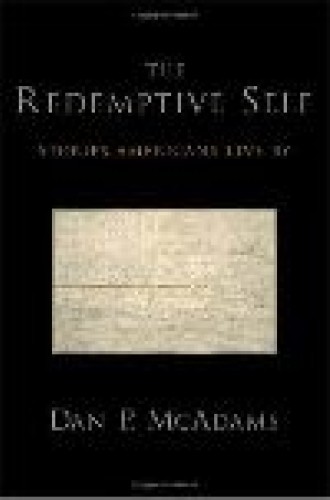Hazardous dreams
It was a cold, damp day of the kind that the Irish call summer. I’d paid my respects at the modest grave of William Butler Yeats and then meandered over to admire a narrow, windowless tower built to guard against marauding Danes a thousand years ago. I was en route with my mother to Galway for dinner with yet another gathering of cousins. She had planned this trip to call a halt to any further erosion of my Irish identity by immersing me in our enormous Gaeltachten clan.
After a week of this and gallons of tea, I was cherishing a moment alone. Standing by that ancient tower, braced against the wind off Sligo Bay, I was startled to recognize that I’d never felt so American. America claimed me as this ancient tower did not.
But what was that claim? What did it mean to me to be American? I hadn’t a clue. My grandparents came to America in the 20th century, so most of America’s history didn’t seem to be mine. But neither was Ireland’s, I’d discovered. To be thus without a story, without a story as old as this stark, blind tower, seemed both lonely and dangerous. And foolish somehow, as if I were willfully refusing the tempering wisdom that only history can provide. This seemed a most American predicament, a heritage of absence.
That was 20 years ago. The ghosts of history lost have followed me all these years like the thieving vengeful fairies of Irish lore. But now Dan McAdams has banished a fair number of those ghosts: I understand as never before what it means to be an American. The Redemptive Self is a readable, lively work by a skillful storyteller, and it has won the 2006 William James Award from the American Psychological Association for best general-interest book in psychology. The tale McAdams offers is as rich and nuanced as a fine novel—and just as resistant to easy summary. Through analysis of the stories we tell, both as individuals and as a nation, he explores how living here, breathing this air, shapes our personal selves.
But my story is my own, I’m tempted to object, my personal history a quirky mix of particulars. I suppose we’d all say that.
Which is McAdams’s point. We do all say that. Such individualism is as American as apple pie. “I’m not like anybody else here; I’m unique; I’m different” is but one of the commonplaces McAdams identifies in the life narratives he solicited and recorded as part of his research as director of the Foley Center for the Study of Lives at Northwestern University.
From the evidence he has collected over decades of such study he concludes that the life stories Americans tell—the unwritten autobiographies we carry about in our heads—reflect both cherished and contested themes in American culture. Whether or not we are descended from folks who arrived with the Puritans or fought the Civil War, our life stories are apt to display narrative strategies that reflect this cultural context. Narrative identity is always culturally informed.
Our life narratives reflect our national legacy because storytelling is a culturally acquired skill: we acquire effective narrative strategies by hearing popular stories and learning how to tell a tale that will engage our listeners. Anyone who has ever had to write a spiritual-journey narrative for an admissions committee or a discernment commission has no doubt felt the exquisite power of audience. That’s merely a special instance of a more general, less conscious process. McAdams supports his claim with an uncommonly rich array of evidence both from the individual life narratives he has collected and from a broad, astutely chosen array of cultural documents ranging from the Puritan sermons of John Winthrop to People magazine. The Redemptive Self is a tour de force, a model of how cultural criticism should be conducted.
What is called American exceptionalism is the first of the six major themes McAdams delineates. In this regard, all of us were born in Lake Wobegon, where all the children are above average. The Puritans claimed to be God’s elect; Emerson, like Ben Franklin before him, secularized that into “Trust thyself.” Whitman sang of himself, as did adherents of innumerable unchurched spiritual movements of the 19th century, and we’ve been humming that tune ever since. Horatio Alger stories and a half century of best-selling self-help books are further evidence of what McAdams has discovered, particularly in his narratives of well-adjusted, high-functioning, productive adults: that we are apt to feel that the special gifts of our morally acute “inner selves” have destined us to do great things, to be outstanding, at least in our own social setting. We are all supposed to be remarkable in some way. Normal and average will never do. They are forms of failure.
There’s a direct line from this exceptionalism to the belief that, like the Puritans who sought to be a city on a hill, each of us is called and uniquely equipped to “make the world a better place.” That’s a rhetoric richly visible in the life stories told by the adults McAdams studied. But it’s also deployed—as he documents—by apologists for the most egregiously aggressive American foreign-policy initiatives. Traditions that sustain healthy civic engagement can balloon into dangerously egotistical self-assertion: having a Manifest Destiny, whether personally or nationally, is hazardous.
The narratives further reveal the conviction that good always comes from suffering. Evil and pain will always be redeemed. Tomorrow will always be better. As McAdams demonstrates from a wide array of sources, Americans are nearly addicted to tales of adversity overcome. And not merely overcome: adversity yields to triumph, to something far better than what has gone before. This is eschatological hope inflated into literal-minded expectation, the American Dream verging on hallucination.
The hazards are obvious. “Redemption” thus defined denies the tragic dimension of human experience. Life all too often includes losses from which little or no visible good ever comes. It’s both foolish and dangerous to pretend otherwise. It’s also immoral, McAdams argues, to think that equivalent or greater redemptive good will come from horrific geological or geopolitical events. But much in American culture—and in the life stories McAdams analyzes—yields to the tyranny of the happy ending.
But if having problems is un-American, then having intractable, overwhelming problems is seditious and subversive. It threatens the clenched-jaw denials that keep the rest of us going. No wonder, then, that Americans mired in serious troubles are so commonly either invisible or held personally responsible for failing to turn their pain into gain. And no wonder we too often seek escapist or addictive refuge from the realities of our own lives.
When the Christian story of redemption was secularized into the redemptive self that McAdams describes, it became a secular ideology that supports both unrestrained, unreflective egotism and generative, generous social engagement. As I realize now, to be American is to inherit this heroic self-narrative and to struggle with the blindness that this inheritance can entail. American individualism blinds us to our own enculturation, as if we are all imprisoned in a tower without windows—like the one by Sligo Bay.






